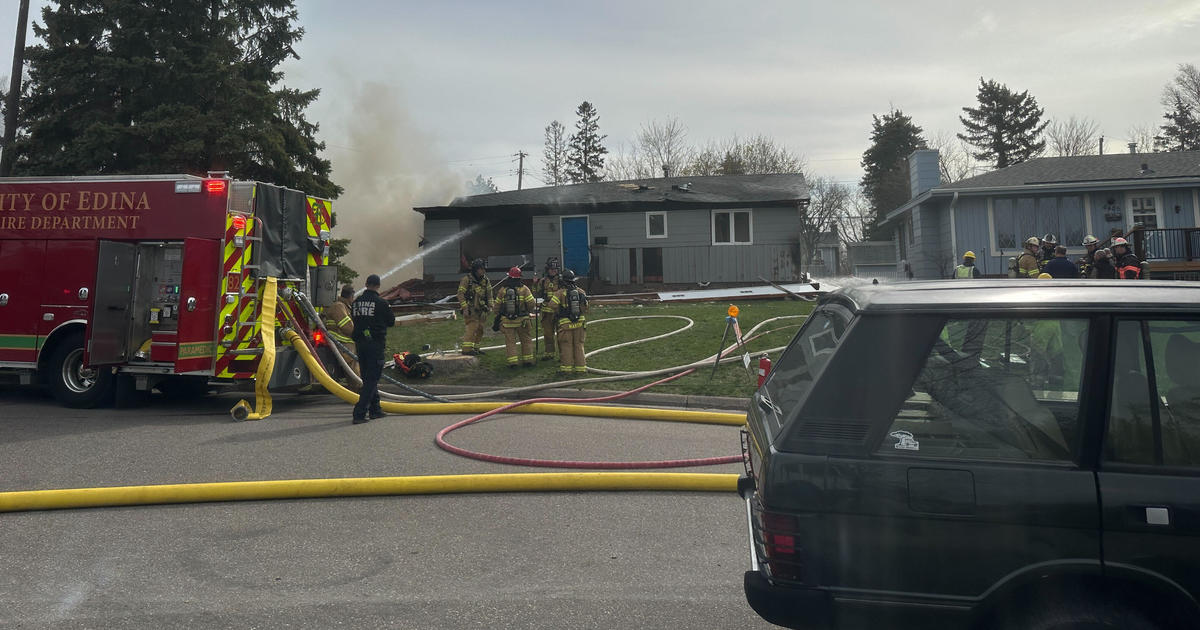3M To Pay $850M In Settlement Over Groundwater Contamination
MINNEAPOLIS (WCCO) -- A decades-long fight over environmental damage has come to an end.
The Minnesota Attorney General announced the state reached a deal with 3M over chemicals called PFCs that the company legally dumped in the east metro.
3M once used PFCs to make Scotchguard fabric protector and other products. The State Attorney General says the chemicals caused higher rates of cancer and premature births after it was found in drinking water. The Minnesota Health Department recently said it cannot prove those claims. 3M denies any wrongdoing.
The deal came as jury selection for the long-awaited trial got underway.
State Attorney General Lori Swanson says the settlement wasn't about liability, but about getting the money to fix the natural resources that were damaged by the dumping.
The $850 million settlement will be awarded as a grant to the state government. The Minnesota Pollution Control Agency says will go towards drinking water sustainability projects in the East Metro. The agency says both private and commercial wells will be eligible to receive some of those funds to fix what was contaminated.
Swanson says her office has no jurisdiction to recover damages for personal injury or the lost value of property, but she does believe the settlement was a win for Minnesota.
"The bottom line is we're very pleased with the settlement, because the settlement will provide real money," she said at a news conference Tuesday evening. "And it's going to help municipalities, it's going to help individual homeowners, and will help try to make right and fix this problem. So I'm pleased that 3M has stepped forward to enter into this settlement as well, and provide real relief for the people of Minnesota."
Swanson says negotiations with the company went until 5 a.m. Tuesday. She will hold another briefing to let those impacted by the PFCs know how the funds will be distributed to help repair what was contaminated.
"It's scary because we depend on water. We need water everyday," Joby Randrup of Cottage Grove said.
Joby uses a special filter in his Cottage Grove home. He says it helps make sure the water is safe for his family to drink and use.
"This is something that's imposed on us. That's where I get a little bit upset," he said.
When the Randrups moved into their house, talk of Perfluorochemicals -- or PFCs -- in the water was just starting in the city. 3M had been dumping chemicals at several sites in Washington County. That was 13 years ago.
Today, the Randrups don't let their two kids drink the water at their school.
"They have to take a water bottle. If they forget their water bottle, they go thirsty," Amy Randrup said. "If we go down to the park, we don't let them drink out of the fountain at the park."
Tuesday's settlement is significantly less than the $5 billion the state originally asked for. The Randrups say they're disappionted.
"What's going to happen to our property values? What's going to happen to the tax base of the community once people find out that there's PFCs in this area?" Joby said.
The Randrups say they aren't taking any chances, but don't want to uproot their family to move.
Swanson also said she was disappointed in a statement the Minnesota Department of Health put out on the eve of the trial, saying it was meant to "sideline" what the state was trying to do against 3M. For now, she says the settlement is the largest for an environmental lawsuit in the state's history.
Law experts say there are many reasons why a case this big did not go to trial.
Professor Alexandra Klass teaches environmental law at the University of Minnesota. She said while each side has their own reasons for settling, it did not help that the Department of Health recently issued a report that couldn't prove the chemicals caused certain types of cancer.
"In this case, even though this resolves the state's claim for natural resource damages against 3M, it has no impact on the potential for individual residents to bring their own suits if they're in a position to try to prove up damage either to their properties or to their health," she said. "It's hard to tell in a settlement who wins and who loses. You could say that the public has won because now there's a lot more information about these chemicals. There's a lot more awareness about contamination."
Professor Klass also says while the state settled with significantly less money than what they were hoping for, the case still sets a precedent.
PFC's are a family of manmade chemicals that have been used for decades to make household products. The Minnesota Department of Health and Minnesota Pollution Control Agency have investigated a number sites across the state where PFCs were released to the environment.



